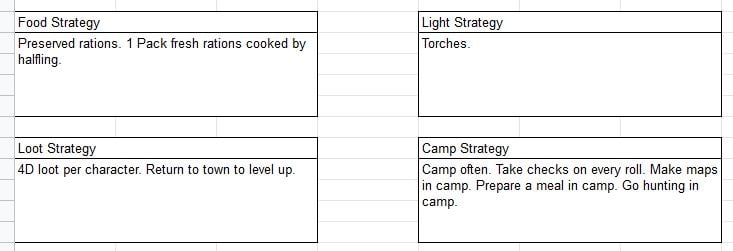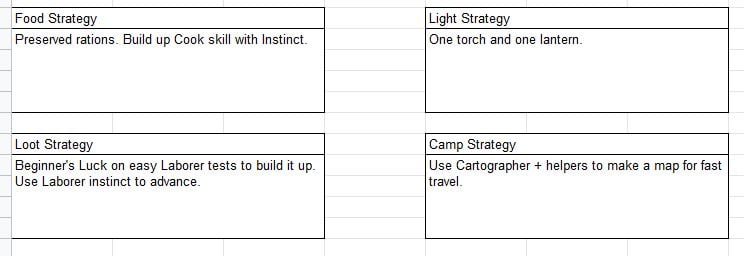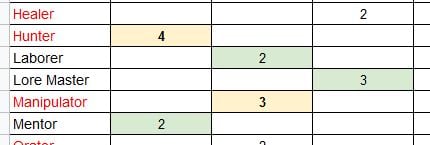Loot as if you were to die tomorrow. Level up as if you were to live forever.
- The Adventurer Credo
Road to Redemption
Today, let's continue with the Road to Redemption series. Last time, we covered different types of team builds. Today, we'll look at how to plan which classes to assemble into the team and also how to start planning advancement.
In many traditional RPGs, creating a character can be done in isolation. New players can show up at the table with their favorite character sheet already to go and join right on in. In Torchbearer, there needs to be more thought and emphasis placed on creating a team rather than just a character because of the fixed starting skills of a class, the tight coupling of helping skills, and the unique team specialty. You wouldn't want to show up at the dungeon without a Dungeoneer, but some parties might agree to go without a Laborer or Cook for a while because they have planned a workaround.
When trying to pick a class, you can plan for new challenges by using a little spreadsheet tool called the Team Builder. The Team Builder is a very simple worksheet to apply advanced loot and survival strategies. It's something that helps to expedite team building, but also enables the GM and players to plan for the growth of the team.
Let's look at a filled-out spreadsheet team build for the Iconic and Road to Redemption Classes.In the filled-out spreadsheet, I've created two different team builds. Both are "balanced build" types that have the essential skills covered. Toggle between the tabs in the document to compare and contrast the two parties.

The main part of the team-building worksheet is at the bottom. We will use the questions from Part 1 of this series. When the sheet is complete, the group should have an answer to how they are going to address the resource and survival aspect of the game. These strategies will continue to evolve during team creation and play.
Food strategy
How will you acquire food?
Light strategy
How will you distribute the light sources among the characters?
Loot strategy
Are you searching for leads, knowledge, or a big magic item?
Camp strategy
When, how often, and where will the party make camp?

In this example, the party has a good Cook, so they bring a bunch of Preserved rations and one stack of Fresh rations. They plan for that inevitable moment when they expend all of their Preserved Rations and then need to feed the whole party from a single Fresh ration.
The group has a lot of Camp instincts, so they make note that they have to camp often to gain the Reward for "Benefiting from an Instinct." Since this is a large party of six, they make note to take checks on every roll. They plan to advance slowly and play conservatively, sometimes only covering three areas in the entire session. If we compare the second party, we can see how there are some similarities, but their situation is different.

Since they don't have a strong Cook, they plan to build up that skill with a cooking instinct. With a group of five adventurers instead of six, they can use a single torch and a lantern to illuminate the entire party. Those torches use up valuable Hand inventory slots that are much better suited for carrying a sack of treasure. Also, they note that they will push Laborer advancement by carrying an extra sack—that's an easy Ob test for beginning characters. In a few sessions, they should be able to have a Cook and a Laborer.

In the document, the skills and the red team specialties are on the left. I use a Yellow highlight to show the selected team specialty and green to indicate which two skills are the current focus. In this way, players can better understand how everyone is trying to develop.

In our Road to Redemption party, you can see they have marked the two Beginner's Luck skills with a zero but prioritized that advancement with a green highlight. The Monk has also selected Mentor as a skill to prioritize so that he can teach the other characters how to be better fighters.
As a final note, most primary class skills like Fighter or Arcanist will advance naturally. However, since a lot of classes have Fighter, you might agree that one character will be the principal fighter.
By using a worksheet like this, it can help groups plan and strategize how best to grow from session to session and gain an overview of advancement. In a large group, each session might only provide a few advancement points. So, it is essential to make those count.
Game on,
Koch
